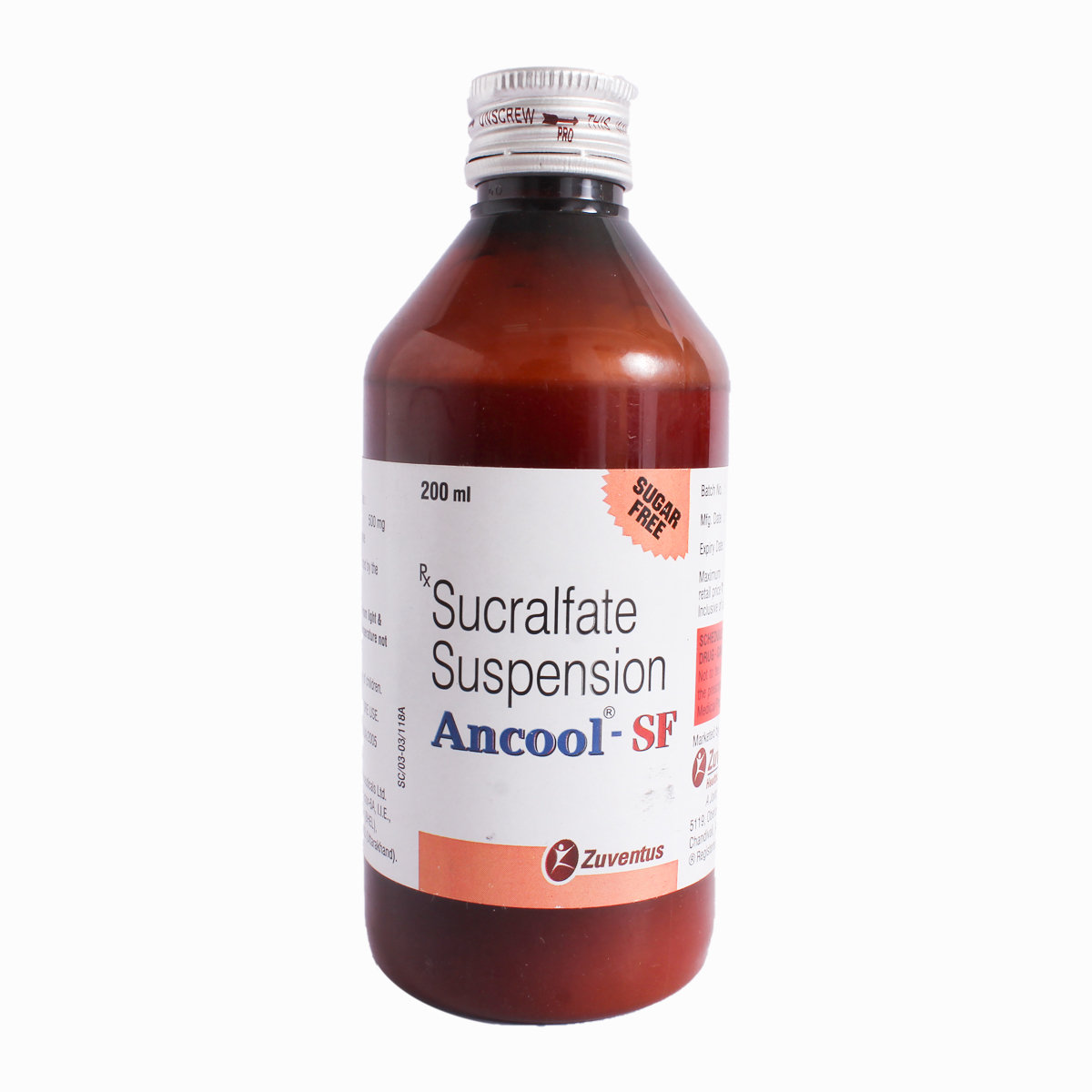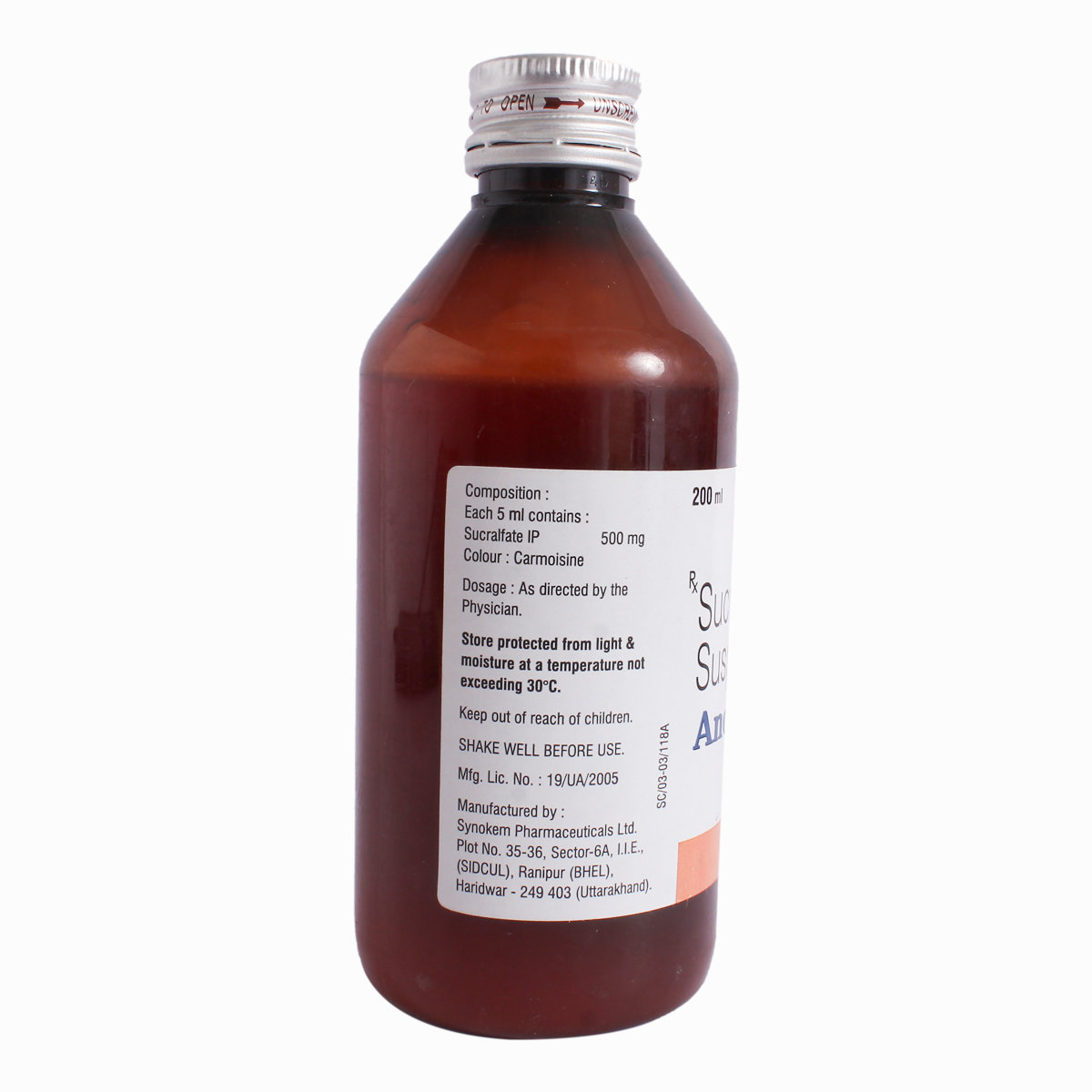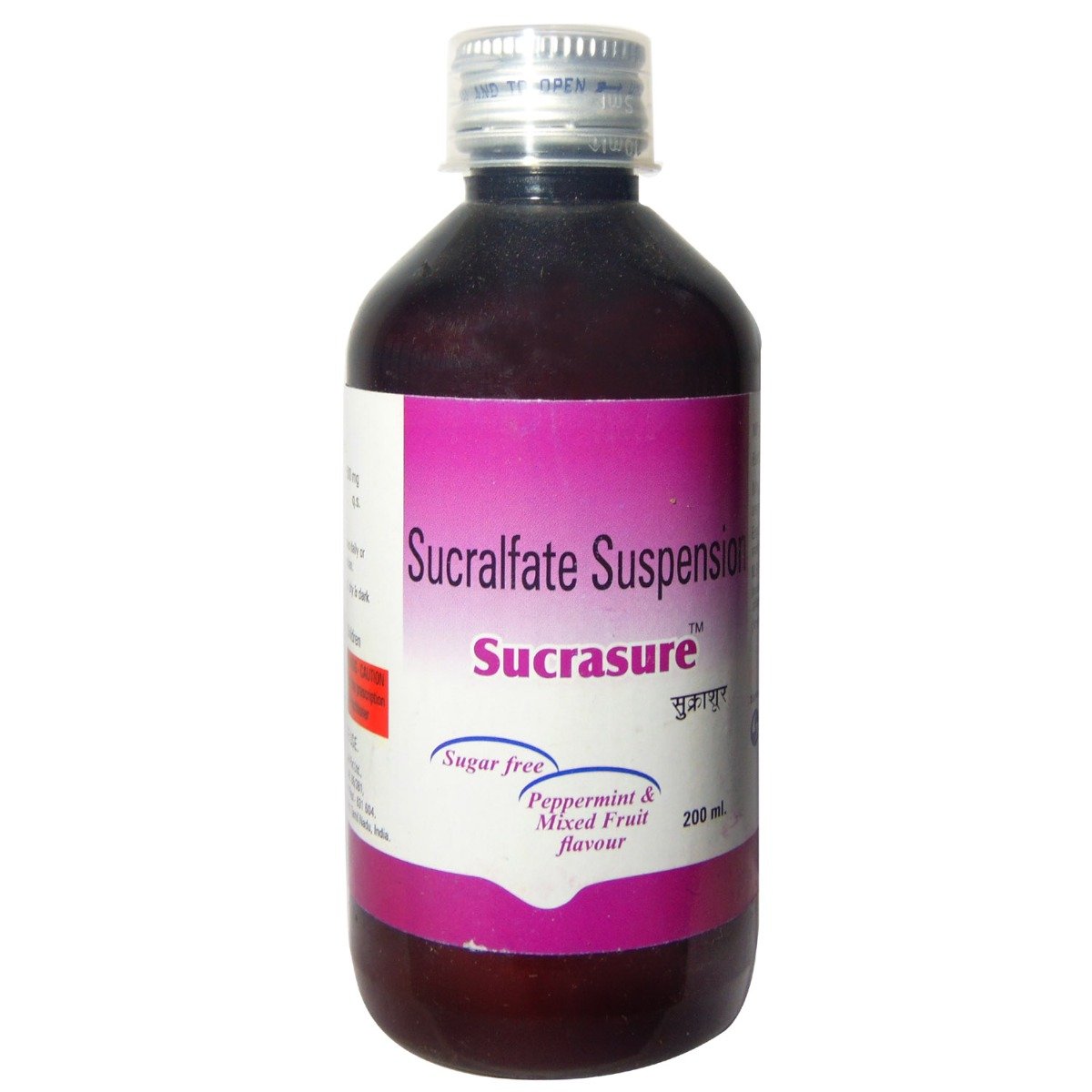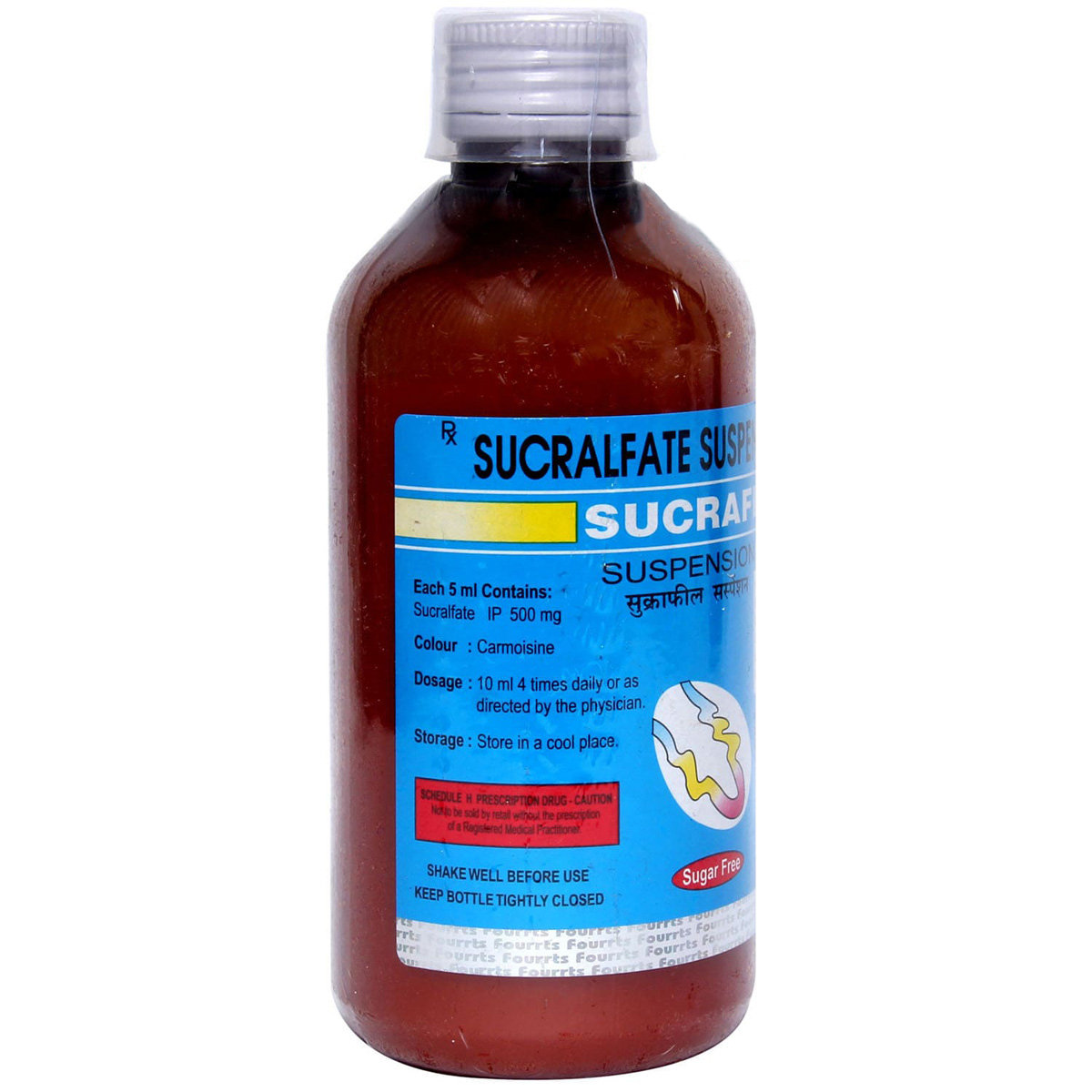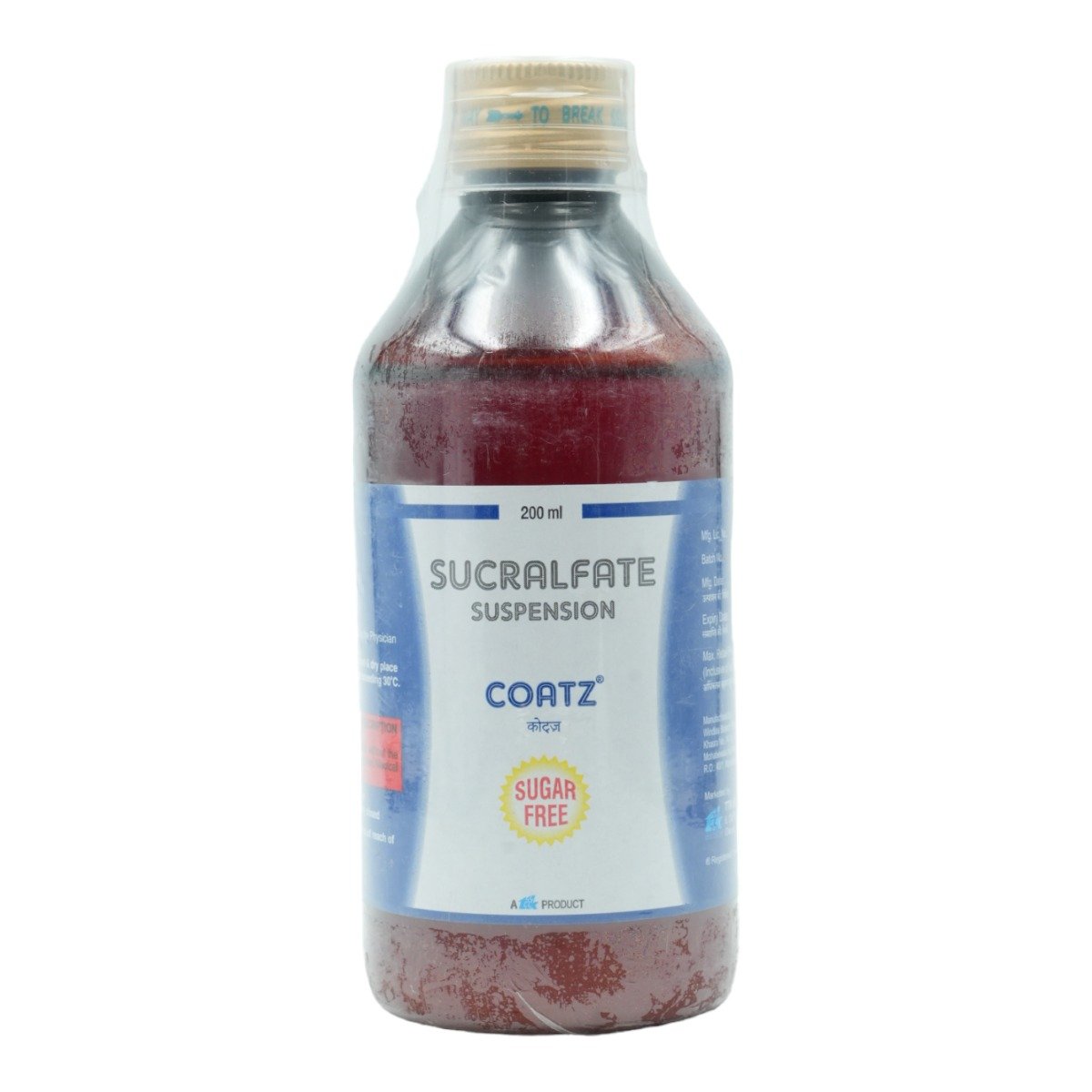Ancool-SF Suspension 200 ml
MRP ₹178.5
(Inclusive of all Taxes)
₹26.8 Cashback (15%)
Provide Delivery Location
Online payment accepted
 Prescription drug
Prescription drugWhats That
Composition :
Manufacturer/Marketer :
Consume Type :
Expires on or after :
Return Policy :
About Ancool-SF Suspension
Ancool-SF Suspension belongs to a gastrointestinal class of drugs called 'ulcer protectants' primarily used to prevent or treat peptic ulcers or gastrointestinal ulcers. A peptic ulcer is a sore on the stomach's lining or the first part of the small intestine (duodenum). Ulcer or sores of the stomach region is called gastric ulcer, while ulcer of the duodenum is known as duodenal ulcer.
Ancool-SF Suspension contains 'Sucralfate', which works by forming a protective barrier or coat over the ulcer so that digestive enzymes, acid and bile salts cannot further irritate the lining of the stomach and duodenum. This protects the ulcer from the stomach's acid, allowing it to heal.
Your doctor will advise you on how often you take Ancool-SF Suspension based on your medical condition. Some people may experience common side effects like constipation, dizziness, sleepiness, dry mouth, blurred vision, and diarrhoea. Most of these side effects of Ancool-SF Suspension do not require medical attention and gradually resolve over time. However, if the side effects persist or worsen, please consult your doctor.
Avoid taking any antacid like magnesium hydroxide or aluminium hydroxide within 30 minutes before or after taking Ancool-SF Suspension . If you are known to be allergic to Ancool-SF Suspension or active and inactive ingredients present on it, please tell your doctor. If you are pregnant or breastfeeding, it is advised to consult a doctor before using Ancool-SF Suspension . Duodenal ulcer tends to be a recurrent disease. Try not to stop taking Ancool-SF Suspension of your own. Stopping a sudden intake of Ancool-SF Suspension will not influence the frequency or severity of future ulceration. Let your doctor know if you have any kidney problems. People with reduced kidney function may be more likely to experience side effects of aluminium accumulation with Ancool-SF Suspension . The dose adjustment is necessary for patients with kidney disease and elderly patients.
Uses of Ancool-SF Suspension
Directions for Use
Key Benefits
Ancool-SF Suspension is a class of an anti-ulcer drugs prescribed for treating or preventing the return of duodenal ulcers (ulcers located in the first part of the small intestines). Ancool-SF Suspension works by forming a protective barrier or coat over the ulcer to pepsin and bile and inhibits the diffusion of gastric acid. This protects the ulcer from the stomach's acid, allowing it to heal. Ancool-SF Suspension exhibits a cytoprotective effect and forms a viscous, adhesive barrier on the surface of the intact intestinal mucosa and the stomach. Ancool-SF Suspension stimulates the synthesis and release of gastric mucosal prostaglandins, bicarbonate, and the epidermal growth factor, which promotes healing.
Storage
- Inform your doctor about your constipation symptoms. They may adjust your medication or advise alternative treatments.
- Stay hydrated by drinking sufficient of water (at least 8-10 glasses a day) to help soften stool and promote bowel movements.
- Increase fibre intake by eating foods high in fibre, such as fruits, whole grains, vegetables and legumes, to help bulk up the stool.
- Establish a bowel routine by trying to go to the bathroom at the same time each day to train your bowels.
- Engaging in regular exercise, like walking or yoga, can support in bowel movement stimulation.
- Consult your doctor if constipation persists, and discuss alternative treatments or adjustments to your medication.
- Hydrate your body: Drink enough water to prevent dehydration and headaches.
- Calm Your Mind: Deep breathing and meditation can help you relax and relieve stress.
- Rest and Recharge: Sleep for 7-8 hours to reduce headache triggers.
- Take rest: lie down in a quiet, dark environment.
- Cold or warm compresses can help reduce tension.
- Stay Upright: Maintain good posture to keep symptoms from getting worse.
- To treat headaches naturally, try acupuncture or massage therapy.
- Over-the-counter pain relievers include acetaminophen and ibuprofen.
- Prescription Assistance: Speak with your doctor about more substantial drug alternatives.
- Severe Headaches: Seek emergency medical assistance for sudden, severe headaches.
- Frequent Headaches: If you get reoccurring headaches, consult your doctor.
- Headaches with Symptoms: Seek medical attention if your headaches include fever, disorientation, or weakness.
Drug Warnings
You should avoid taking Ancool-SF Suspension if you are allergic to Ancool-SF Suspension or other ingredients present in it, have kidney disease, stomach/intestine problems (delayed gastric emptying), are pregnant or planning for pregnancy, and are a breastfeeding mother. Caution is required before giving Ancool-SF Suspension to elderly patients. Ancool-SF Suspension contains aluminium, which is normally removed by your kidney. Therefore, older adults and people with kidney problems may be at greater risk for developing high aluminium levels while using this drug with other products containing aluminium (e.g. antacids). The safety and effectiveness in children are not established; please consult your doctor before giving Ancool-SF Suspension to children.
Drug-Drug Interactions
Drug-Drug Interactions
Login/Sign Up
Co-administration of Ancool-SF Suspension 200 ml together with Digoxin may decrease the effects of Digoxin.
How to manage the interaction:
If you are supposed to take Digoxin and Ancool-SF Suspension 200 ml together, your doctor may adjust the dose to safely use both medications. Do not discontinue the medication without consulting a doctor.
Coadministration of Paricalcitol with sulfasalazine may increase the risk or severity of kidney problems.
How to manage the interaction:
There may be a possibility of interaction between Paricalcitol and Ancool-SF Suspension 200 ml, but it can be taken if prescribed by a doctor. Do not discontinue any medications without consulting a doctor.
Coadministration of dolutegravir with Ancool-SF Suspension 200 ml can lead to decreased levels and effects of Dolutegravir.
How to manage the interaction:
Although taking Dolutegravir and Ancool-SF Suspension 200 ml together can possibly result in an interaction, they can be taken together if prescribed by your doctor. It is advised to take dolutegravir either two hours before or six hours after taking a dose of Ancool-SF Suspension 200 ml. Do not discontinue any medications without consulting a doctor.
Taking Cholecalciferol together with Ancool-SF Suspension 200 ml may increase the risk or severity of kidney problems.
How to manage the interaction:
There may be a possibility of interaction between Cholecalciferol and Ancool-SF Suspension 200 ml, but it can be taken if prescribed by a doctor. Do not discontinue any medications without consulting a doctor.
Coadministration of Doxercalciferol with sulfasalazine can increase the risk or severity of kidney problems.
How to manage the interaction:
There may be a possibility of interaction between Doxercalciferol and Ancool-SF Suspension 200 ml, but it can be taken if prescribed by a doctor. Do not discontinue any medications without consulting a doctor.
Ancool-SF Suspension 200 ml can affect blood glucose regulation and reduce the efficiency of other diabetic drugs, such as tirzepatide. Take particular attention to your blood sugar levels. Your diabetes medications may need to be adjusted in dosage both during and after Ancool-SF Suspension 200 ml treatment.
How to manage the interaction:
Monitor your blood sugar levels closely. You may need a dose adjustment of your diabetic medications during and after treatment with Ancool-SF Suspension 200 ml.
Drug-Food Interactions
Drug-Food Interactions
Login/Sign Up
Diet & Lifestyle Advise
- Avoid intake of acid or heartburn triggering foods or drinks like peppermint, chocolate, onions, caffeinated beverages, citrus fruits or juices, tomatoes, and high-fat and spicy foods.
- Eating five or six smaller meals throughout the day rather than three large meals. It can help reduce the production of stomach acid.
- Avoid taking alcohol and smoking cigarettes and red meat. It increases the production of stomach acid and makes symptoms worse. It can also cause erosion of the stomach lining.
- Include the high fiber-containing foods, leafy green veggies (kale, spinach), green tea in your meal. Fermented dairy products like miso, sauerkraut, and kimchi contain probiotics which help in the prevention of excess acid production.
- Cranberry juice can be beneficial in peptic ulcers and H. pylori infections.
Side Effects of Ancool-SF Suspension
- Constipation
- Dizziness
- Sleepiness
- Dry mouth
- Nausea
Habit Forming
Therapeutic Class
All Substitutes & Brand Comparisons
RX
Out of StockAsuc 500mg Suspension
Anant Pharmaceuticals Pvt Ltd
₹67
(₹0.6/ 1ml)
25% CHEAPERRX
Out of StockSucratas Suspension 200ml
Intas Pharmaceuticals Ltd
₹149
(₹0.67/ 1ml)
16% CHEAPERRX
Out of StockMetavate 500mg Oral Suspension
₹75
(₹0.68/ 1ml)
15% CHEAPER
Author Details
We provide you with authentic, trustworthy and relevant information
Drug-Diseases Interactions
Drug-Diseases Interactions
Login/Sign Up
FAQs
Drug-Drug Interactions Checker List
- DOLUTEGRAVIR
- DOXERCALCIFEROL
- PARICALCITOL
- CIPROFLOXACIN
- GEMIFLOXACIN
- LEVOFLOXACIN
- ACARBOSE
- METFORMIN
- GLIPIZIDE
- ALUMINUM HYDROXIDE
- WARFARIN
Special Advise
Ancool-SF Suspension is prescribed for acute or short-term conditions of duodenal ulcer. Do not take Ancool-SF Suspension for more than eight weeks. If still, your duodenal ulcer persists, stop taking Ancool-SF Suspension and contact a doctor. Ancool-SF Suspension contains aluminium, so if you are a kidney patient, let your doctor know about this before taking Ancool-SF Suspension .
Disease/Condition Glossary
Duodenal ulcer: It is a sore that forms in the lining of the small intestine just beyond the stomach (duodenum). The stomach makes a strong acid that kills germs and helps you digest food. To protect themselves against this acid, duodenum cells make a barrier from mucus. If this barrier is damaged, an ulcer can form. The main cause of this barrier damage is infection with bacteria (H. pylori), medicines like NSAIDs or painkillers (aspirin, ibuprofen). If you have a duodenum ulcer, you might have symptoms like have pain in the stomach or abdomen (this might come and go and is relieved by taking an antacid), indigestion, nauseous, feeling full after taking a small amount of food, bloody or black stools.

Have a query?
Alcohol
Safe if prescribed
Drinking alcohol with Ancool-SF Suspension may cause dehydration and elevate the level of stomach acid, thereby decreasing Ancool-SF Suspension efficacy.
Pregnancy
Consult your doctor
Ancool-SF Suspension should not be taken until prescribed. Your doctor will weigh the benefits and any potential risks before prescribing it to you. Please consult your doctor.
Breast Feeding
Consult your doctor
There is limited data on how Ancool-SF Suspension affects breastfeeding. Please consult your doctor, before taking Ancool-SF Suspension . Your doctor will weigh the benefits and any potential risks before prescribing them to you.
Driving
Safe if prescribed
Ancool-SF Suspension decrease alertness, affect your vision or make you feel sleepy and dizzy. Do not drive if these symptoms occur.
Liver
Consult your doctor
Ancool-SF Suspension to be taken with caution if you had or have a history of liver disease/conditions. The dose may have to be adjusted by your doctor.
Kidney
Consult your doctor
Ancool-SF Suspension contains aluminium, which is normally excreted by your kidney. Therefore, people with kidney problems may be at greater risk of high aluminium toxicity in the body. The dose adjustment is necessary for patients with kidney disease.
Children
Safe if prescribed
The safety and effectiveness of Ancool-SF Suspension in children have not been established. Please consult your doctor before giving Ancool-SF Suspension to children.

